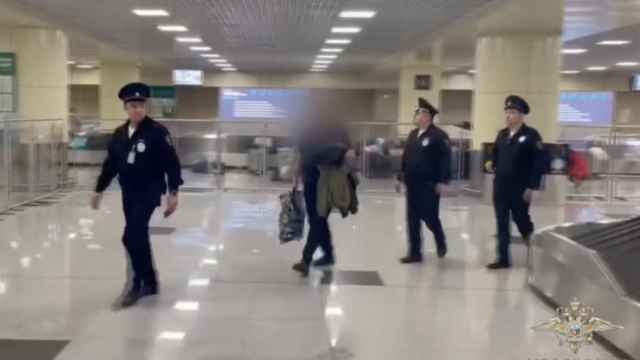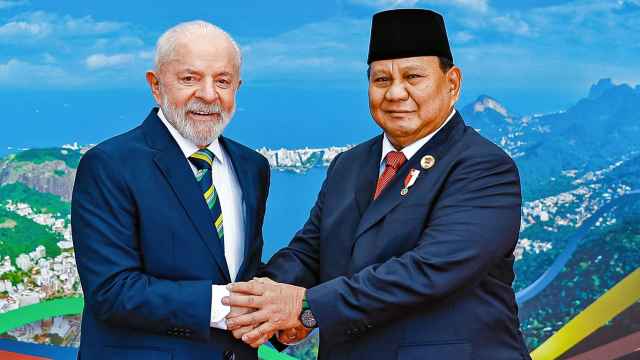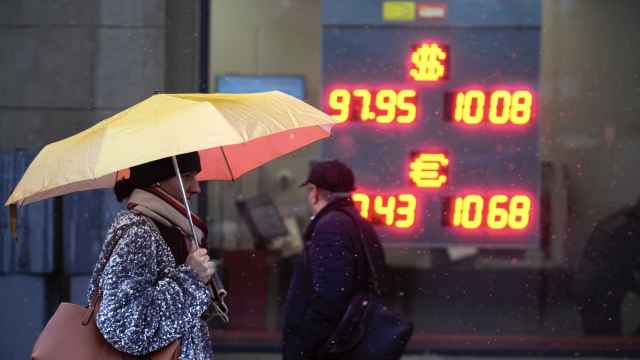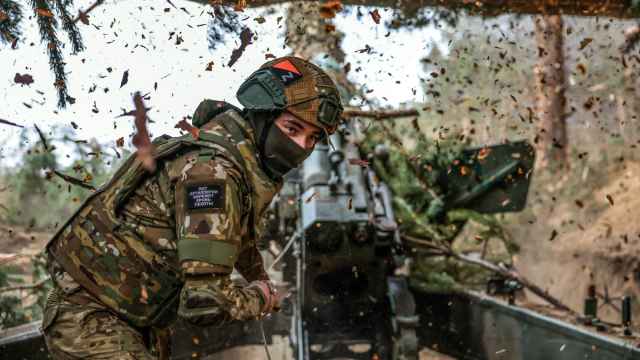To conduct a further examination of the results of the Dec. 4 State Duma elections, the Council of Europe has decided to send a post-electoral monitoring delegation to Moscow from Jan. 19 to 22.
This Council of Europe initiative is particularly significant in view of Russia's importance today within the context of Europe and because Russia is one of the five leading Council of Europe member countries, together with Italy, France, Germany and Britain.
The delegation is required to provide more precise information for the parliamentary debate scheduled for Jan. 26, when the Strasbourg Assembly will appraise the results of the elections and probably ask Russia to agree on a roadmap with Council of Europe's Parliamentary Assembly, or PACE, laying out specific stages and contents relating to substantive reforms in the process of democratizing political life. This must include a new electoral law; a new procedure for registering new political parties that will finally make genuine political competition possible; a truly independent judiciary; robust measures to combat corruption and bureaucracy; improved human rights guarantees; and the free expression of opinion through popular demonstrations.
In essence, it will mark the beginning of an irreversible process of endorsing European values and standards, and of opening up public institutions to civil society.
It is expected that the stance of PACE will be very determined and resolute. The outcome of the elections, the investigation into the blatant acts of what has been described as "amateurish" electoral fraud, carried out under the eyes of observers, and the protests that followed in December, in which more than 100,000 people protested democratically and peacefully, was alarming to most Europeans.
To a certain extent, this post-electoral monitoring provides confirmation that Russia must necessarily open up to forms of more complete democracy, and evident support for the peaceful and democratic protests demanding a radical renewal of politics and the institutions in the Russian Federation.
Europe hopes that 22 years after the collapse of the Berlin Wall, 20 years after the demise of the Soviet Union and 16 years after the country's accession to PACE, the current level of democracy in Russia will be able to grow in a positive direction. It also trusts that as a great country and a major global player, Russia will decide to reach out increasingly to cooperation on an equal footing through a more stable and productive European Union-Russian partnership. In the wake of Russia's accession to the World Trade Organization, the EU-Russian alliance will help foster a period of peace, stability and prosperity, particularly for younger generations, who will inevitably be the frontline players in the new Greater Europe stretching from Vladivostok to Reykjavik.
It is my personal opinion that the path to democracy, rule of law and respect for human rights will be a long and difficult process entailing the need for an increased overall awareness on the part of the political and business elites in Russia. The notion of exporting democracy is doomed to failure — not only because it ignores the lessons of history, but also because it creates the risk of reinstating a new dividing line within Europe, which would take us back to the bleak years of the past.
Democracies come into being and are consolidated as a result of years of work and a great deal of patience, and it takes time for their instruments to put down solid roots. This is why Russia must be encouraged and supported, and cultural exchanges must be increased. Above all, Russian citizens must be helped to enter the Schengen area by simplifying and even lifting the formalities for issuing visas.
Today, Russia is at a crossroads and has an opportunity that can link the value of stability to the start of a process of democratizing her institutions and politics.
Hope can overcome fear. Change can be a greater and more attractive goal than conservation.
The new Russian president, who will be elected on March 4, will be faced with a fascinating prospect: how to consolidate the credibility and the role of a great political and economic power, as well as continuing a process of gradually opening up to democratic freedoms.
Andrea Rigoni is a member of the Italian parliament, a member of the Political Committee in the Parliamentary Assembly of the Council of Europe and an observer of the Council of Europe for post-electoral monitoring.
A Message from The Moscow Times:
Dear readers,
We are facing unprecedented challenges. Russia's Prosecutor General's Office has designated The Moscow Times as an "undesirable" organization, criminalizing our work and putting our staff at risk of prosecution. This follows our earlier unjust labeling as a "foreign agent."
These actions are direct attempts to silence independent journalism in Russia. The authorities claim our work "discredits the decisions of the Russian leadership." We see things differently: we strive to provide accurate, unbiased reporting on Russia.
We, the journalists of The Moscow Times, refuse to be silenced. But to continue our work, we need your help.
Your support, no matter how small, makes a world of difference. If you can, please support us monthly starting from just $2. It's quick to set up, and every contribution makes a significant impact.
By supporting The Moscow Times, you're defending open, independent journalism in the face of repression. Thank you for standing with us.
Remind me later.





